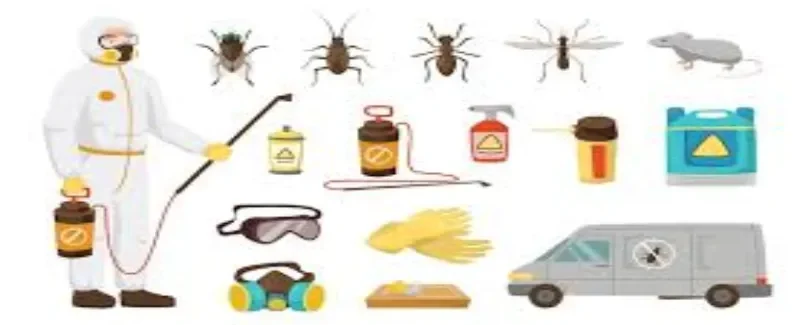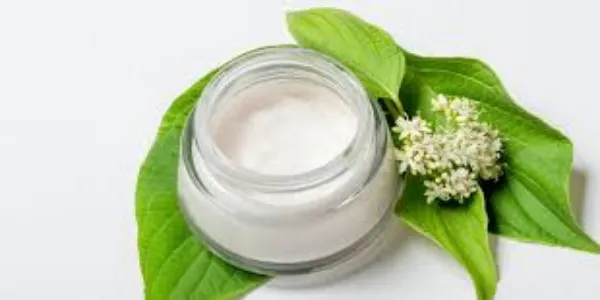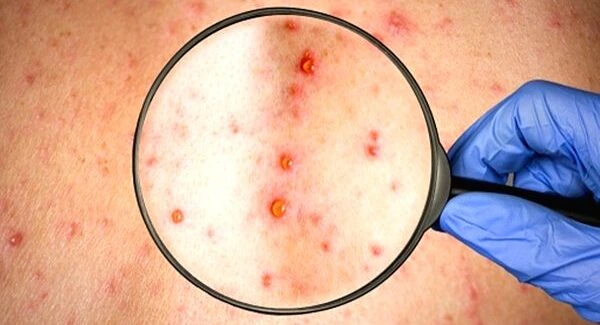A Complete Information on Mosquito Repellents

Posted Date: March 27th, 2023
Mosquito repellents are substances that are designed to prevent mosquitoes from biting and thus reduce the risk of mosquito-borne diseases. Mosquito repellents prevents us from malaria, dengue fever, Zika virus and others. Mosquito repellents can be applied directly to the skin or clothing or used in the form of sprays, lotions, creams or other products.
Mosquito repellents work by masking the chemical signals that attract mosquitoes to humans such as carbon dioxide, lactic acid and sweat. Some repellents also work by confusing mosquitoes sense of smell making it difficult for them to find their target.
Common active ingredients in mosquito repellents include DEET (N,N-diethyl-meta-toluamide), picaridin, IR3535 and plant-based oils such as citronella, eucalyptus and lemongrass. It is important to follow the instructions for use and safety precautions when applying mosquito repellents as some products can be toxic or cause skin irritation if used improperly.
Mosquito repellents are available in various forms such as sprays, lotions, creams and wearable devices. They should be applied to exposed skin or clothing and reapplied as necessary, following the instructions on the product label. Some mosquito repellents are also designed for use on pets and can help protect them from mosquito bites.
It’s important to note that mosquito repellents should not be used on infants under two months of age and should be used with caution on young children. Additionally some individuals may be allergic to certain ingredients in mosquito repellents so it’s essential to test a small area of skin before applying the product widely.
See also
Types of mosquito repellents are:
DEET-based repellents: These repellents contain N, N-Diethyl-meta-toluamide (DEET) as the active ingredient. DEET-based repellents are highly effective and can provide protection for several hours.
Picaridin-based repellents: Picaridin is a synthetic compound that is similar to the natural compound found in pepper plants. It is an effective mosquito repellent and is considered safer than DEET.
Natural repellents: These repellents are made from natural ingredients such as citronella, neem oil, lemon eucalyptus oil and other plant extracts. They are considered safe for use and are suitable for individuals who prefer natural products. They are generally considered safe and eco-friendly and they are available in various forms like candles, incense sticks and sprays.
Electronic repellents: These devices emit ultrasonic sound waves or use light to repel mosquitoes. While they are marketed as effective their effectiveness is still a subject of debate. They are generally considered safe and effective and they are available in various forms like plug-in devices, wristbands and portable devices.
Mosquito coils: Mosquito coils are spiral-shaped repellents that are made from a mixture of powdered wood, coconut shell and a binder. When the coil is lit it smolders and releases smoke that repels mosquitoes.
Mosquito patches: These are small adhesive patches that contain natural or synthetic repellents. They can be attached to clothing or other surfaces and provide protection for a few hours.
Mosquito nets: Mosquito nets are physical barriers that prevent mosquitoes from entering an enclosed space such as a room or a bed. They are considered one of the most effective ways to prevent mosquito bites and the transmission of mosquito-borne diseases.
Chemical repellents: These are the most commonly used mosquito repellents and they contain chemicals like DEET, Picaridin and IR3535. These are available in various forms like sprays, lotions, creams and gels.
Mosquito traps: These devices use various methods to attract and trap mosquitoes such as using UV light, heat or CO2. They are generally considered safe and effective and they are available in various forms like indoor and outdoor traps.
It’s essential to choose the right type of mosquito repellent based on your needs and preferences. It’s also important to follow the instructions on the product label carefully to ensure safe and effective use.
Safe application of Mosquito Repellents
To ensure the safe application of mosquito repellents it’s important to follow these guidelines:
Read the label carefully: Always read the instructions and precautions on the product label before use. Make sure the repellent is appropriate for your age group and follow the recommended application method and amount.
Apply to exposed skin and clothing: Apply the repellent to exposed skin and clothing but avoid applying it to cuts, wounds or irritated skin. Do not apply the repellent near the eyes, mouth or nostrils.
Use recommended amount: Use only the recommended amount of repellent as per the instructions.
Do not apply to infants: DoTo ensure the safe application of mosquito repellents it’s important to follow these guidelines: not use mosquito repellents on infants under two months of age.
Do not apply on cuts: Do not apply repellent on cuts, scratches or irritated skin.
Reapply as necessary: Reapply the repellent as necessary following the recommended intervals on the product label.
Wash off after use: After coming indoors wash the treated skin with soap and water.
Store safely: Keep mosquito repellents out of reach of children and pets. Store them in a cool, dry place, away from heat sources and open flames.
Test for sensitivity: Test a small area of skin before using the repellent widely, especially if you have sensitive skin or are prone to allergies.
Lower concentrations of active ingredientsUse: repellents with lower concentrations of active ingredients for children.
Not use over sunscreen: Do not apply mosquito repellent over sunscreen or other skin care products.
Remember that mosquito repellents are only one part of mosquito control. Other measures such as wearing protective clothing using mosquito nets and eliminating standing water sources can also help reduce mosquito bites and prevent mosquito-borne illnesses.
Disadvantage of Mosquito Repellents
While mosquito repellents are generally safe and effective when used correctly. It can be effective in keeping mosquitoes away and preventing mosquito bites there are some disadvantages to their use:
Health concerns: Some chemical repellents can cause skin irritation rashes and even allergic reactions in some people. There are also concerns about the long-term effects of exposure to some active ingredients especially in high concentrations.
.
Environmental concerns: Chemical repellents can have adverse effects on the environment including harming beneficial insects, aquatic life and pollinators like bees and butterflies.
Risk of misuse: Misuse of repellents such as ingesting them or applying them to areas other than the skin can be dangerous and potentially fatal.
Resistance: Overuse of certain repellents can lead to mosquitoes developing resistance to the active ingredients making the repellents less effective over time.
Effectiveness: Some natural repellents and electronic devices may not be as effective as chemical repellents and may need to be used in conjunction with other measures to prevent mosquito bites.
Allergic reactions: Some individuals may have an allergic reaction to the active ingredients in mosquito repellents, leading to skin irritation, rashes or other symptoms.
Cost: Some types of mosquito repellents can be expensive especially if they need to be used regularly or for an extended period.
Inconvenience: Mosquito repellents need to be applied regularly and can be messy and inconvenient to use especially when traveling or participating in outdoor activities.
Overall, while mosquito repellents can be effective in preventing mosquito bites it’s important to weigh the potential risks and benefits of each type of repellent and use them correctly to ensure their safety and effectiveness.
Precaustion of Mosquito Repellents
To ensure safe and effective use of mosquito repellents it’s important to take the following precautions:
Read the label: Always read the label of the mosquito repellent carefully and follow the instructions provided for safe and effective use.
Choose the right product: Choose a product that is appropriate for your needs and preferences and consider factors like the length of protection the concentration of active ingredients and any allergies or sensitivities you may have.
sparingly: Use the recommended amount of repellent and apply it only to exposed skin or clothing.
Avoid sensitive areas: Do not apply mosquito repellent near the eyes, nose, mouth or any open wounds.
Avoid ingestion: Do not ingest mosquito repellent or apply it to food or drinks.
Store properly: Store mosquito repellent in a cool and dry place away from direct sunlight and heat and keep it out of reach of children.
Test for allergies: Test a small area of skin for allergic reactions before using the repellent widely.
Do not use on infants: Do not use mosquito repellent on infants under two months of age.
Do not use over wounds: Do not apply mosquito repellent over cuts, scratches or irritated skin.
Wash off when not needed: Wash off the repellent with soap and water when it is no longer needed.
Do not use with other products: Do not use mosquito repellent with other skin care products such as sunscreen, as it may reduce the effectiveness of both products.
Following these precautions can help ensure the safe and effective use of mosquito repellents.
Side effect of using Mosquito Repellents on skin
Mosquito repellents can cause side effects on the skin especially if used excessively or improperly. Here are some potential side effects:
Skin irritation: Some individuals may experience skin irritation or a rash when using mosquito repellents, especially those with higher concentrations of active ingredients. Symptoms of skin irritation is swelling, redness and itching.
Allergic reactions: Some people may be allergic to the active ingredients in mosquito repellents and experience a more severe allergic reaction. Symptoms can include hives, difficulty breathing and swelling of the face, lips, tongue or throat. Seek medical attention immediately if you experience any of these symptoms.
Chemical burns: Mosquito repellents that contain high concentrations of DEET or other chemicals can cause chemical burns if left on the skin for too long. Symptoms can include redness, swelling and blisters.
Discoloration of clothing: Some mosquito repellents can cause discoloration or staining of clothing or other fabrics.
Eye irritation: Mosquito repellents should not be applied near the eyes, as they can cause irritation or stinging.
Respiratory problems: Inhaling certain types of mosquito repellents such as those containing aerosols, can cause respiratory problems, especially in individuals with asthma or other respiratory conditions.
Rashes: In some cases, using mosquito repellents can cause a rash on the skin. This can be a sign of an allergic reaction or an irritant reaction.
Dryness: Some mosquito repellents can cause dryness of the skin, especially if used frequently or in large amounts.
Headaches: Some individuals may experience headaches after using mosquito repellents, especially if they are sensitive to the strong odors of some products.
Nausea: In rare cases, using mosquito repellents can cause nausea or vomiting especially if ingested accidentally.
To avoid these side effects it is important to use mosquito repellents according to the instructions provided and to choose products with lower concentrations of active ingredients when possible. If you experience any symptoms of an allergic reaction or skin irritation stop using the repellent and seek medical attention if necessary.
See also
Side effect of electric mosquito repellents:
Electric mosquito repellents are devices that use heat, light or sound to repel mosquitoes. Electric mosquito repellents, also known as plug-in mosquito repellents, are devices that use heat or ultrasonic waves to repel mosquitoes. While they are generally considered safe and effective there are some potential side effects to using these devices:
Skin irritation: Some individuals may experience skin irritation if they come into contact with the hot surface of an electric mosquito repellent device.
Eye irritation: The light emitted by some electric mosquito repellents can cause eye irritation or discomfort.
Respiratory problems: Inhaling the fumes or chemicals emitted by some electric mosquito repellents can cause respiratory problems such as coughing or difficulty breathing.
Noise pollution: Some electric mosquito repellent devices emit high-frequency sounds that may be annoying or disruptive to some individuals.
Environmental impact: Some electric mosquito repellents may use chemicals or emit pollutants that can harm the environment such as ozone.
Overexposure to fumes: Some electric mosquito repellents use chemicals that emit fumes. Overexposure to these fumes can cause headaches, dizziness and nausea.
Fire hazards: Some electric mosquito repellents use heat to vaporize the active ingredient. If left unattended they can pose a fire hazard.
Risk of electrical shock: If the device is damaged or not used properly it can pose a risk of electrical shock.
Ineffectiveness: Some electric mosquito repellents may not be effective against certain types of mosquitoes or in certain environments.
It’s important to use electric mosquito repellents according to the manufacturer’s instructions and to keep them away from sensitive areas such as the eyes or mouth. Additionally it’s a good idea to use these devices in well-ventilated areas to minimize the risk of respiratory problems.
Mosquito Repellents for baby
When it comes to using mosquito repellents for babies it’s important to take extra care to ensure that the products used are safe and effective. Here are some things to consider:
Age: Most mosquito repellents are not recommended for use on infants under two months of age. Instead, parents can protect infants from mosquito bites by using mosquito nets, screens or clothing that covers their arms and legs.
Ingredients: Choose a mosquito repellent that is specifically formulated for infants and uses ingredients that are considered safe for babies such as DEET, picaridin or IR3535. It’s best to avoid using products that contain essential oils, as some of these can be toxic to babies.
Concentration: Use a mosquito repellent with a low concentration of active ingredients such as 10% DEET or less.
Application: Apply mosquito repellent sparingly to the baby’s skin, avoiding the face, hands and any areas that may be covered by clothing.
Timing: Apply mosquito repellent to the baby’s skin only when needed such as during outdoor activities or when mosquitoes are particularly active.
Alternative methods: Consider using alternative methods to repel mosquitoes such as mosquito nets, screens or citronella candles which are generally considered safe for babies.
DEET-free mosquito repellents: DEET is a common active ingredient in many mosquito repellents but it can be harmful to babies. Look for mosquito repellents that are specifically labeled as DEET-free.
Oil of lemon eucalyptus (OLE): OLE is a natural mosquito repellent that has been shown to be effective and safe for children over three years of age.
Picaridin: Picaridin is another alternative to DEET that has been shown to be effective and safe for babies over two months of age.
Mosquito nets: One of the safest options for babies is to use mosquito nets over their crib, playpen or stroller.
It’s important to talk to a healthcare provider before using mosquito repellents on infants or young children, especially if the child has any allergies or medical conditions. When applying mosquito repellent to babies it’s important to use it sparingly and avoid applying it to their hands, as they are likely to put them in their mouths. Additionally it’s a good idea to do a patch test on a small area of their skin before applying the repellent more widely to check for any adverse reactions.
Always follow the manufacturer’s instructions when using mosquito repellents on babies and if you have any concerns or questions, consult with your pediatrician.








